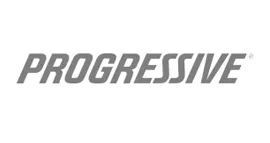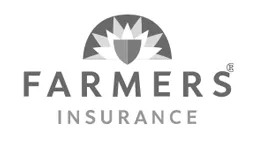Compare Top Car Insurance Rates in 1 Minute
Find the best rates to save up to $875/year
Fast
Secure
No Spam

Thousands Save on Car Insurance Every Year – You Can Too! The only way to get cheap, reliable auto insurance quotes - thanks InsuranceWay! Susan, California
The only way to get cheap, reliable auto insurance quotes - thanks InsuranceWay! Susan, California InsuranceWay made finding the best car insurance affordable and easy! Jared, Michigan
InsuranceWay made finding the best car insurance affordable and easy! Jared, Michigan I got the cheapest car insurance with this free auto insurance calculator! Adam, New York
I got the cheapest car insurance with this free auto insurance calculator! Adam, New York
 The only way to get cheap, reliable auto insurance quotes - thanks InsuranceWay! Susan, California
The only way to get cheap, reliable auto insurance quotes - thanks InsuranceWay! Susan, California InsuranceWay made finding the best car insurance affordable and easy! Jared, Michigan
InsuranceWay made finding the best car insurance affordable and easy! Jared, Michigan I got the cheapest car insurance with this free auto insurance calculator! Adam, New York
I got the cheapest car insurance with this free auto insurance calculator! Adam, New YorkFast
Secure
No Spam
Competitive Auto Insurance Quotes Provided by Top-Rated Companies Like:











Save on Auto Insurance in 2 Simple Steps
1
Enter Your Zip Code
Start by entering your zip code to see quotes in your area.2
Answer a Few Quick Questions
Tell us a little about your auto insurance needs—takes less than 30 seconds!3
Get Matched & Save Big!
Choose the best and cheapest auto insurance tailored to you.1
Answer a Few Quick Questions
Tell us a little about your auto insurance needs—takes less than 30 seconds!2
Get Matched & Save Big!
Choose the best and cheapest auto insurance tailored to you.Explore Our Guides
US Auto Liability Insurance Requirements
Find your state’s exact auto liability insurance requirements in this complete 50-state guide, ensuring you meet legal minimums while avoiding costly fines and legal complications.
Do You Really Need Full Insurance Coverage On an Old Car?
Learn when it makes financial sense to drop comprehensive and collision coverage on older vehicles, including the 10% rule that could save you hundreds annually while still protecting against major liability.
Does Your Car Insurance Cover Rental Cars
Most drivers waste money on unnecessary rental car insurance at the counter. Learn how your existing auto policy likely already protects you and when the extra coverage might actually be worth it.
Guide to Insuring Teenage Drivers in California
California parents face insurance rate increases of 130-200% when adding a teen driver, but strategic shopping and smart discount hunting can save thousands on those brutal first-year premiums.
FAQs: How Does Driving for a Rideshare Company Impact My Car Insurance?
Discover how driving for Uber or Lyft creates dangerous insurance gaps that could leave you financially exposed, and learn about affordable rideshare coverage options that cost just $15-50 per month to protect yourself.
The Smart Senior’s Guide to Auto Insurance in Florida
Florida seniors face the nation’s highest auto insurance rates, but state-specific discounts and smart coverage strategies can save hundreds annually.
Top Ways to Save on Auto Insurance
Discover proven strategies to slash your auto insurance premiums by up to 40% while maintaining full protection, from bundling discounts to safe driver programs that put money back in your pocket.
Uninsured Motorist Coverage
Learn why uninsured motorist coverage is essential protection when you’re hit by a driver without insurance, and how it can save you thousands in unexpected costs.
US Auto Liability Insurance Requirements
Find your state’s exact auto liability insurance requirements in this complete 50-state guide, ensuring you meet legal minimums while avoiding costly fines and legal complications.
Do You Really Need Full Insurance Coverage On an Old Car?
Learn when it makes financial sense to drop comprehensive and collision coverage on older vehicles, including the 10% rule that could save you hundreds annually while still protecting against major liability.
Does Your Car Insurance Cover Rental Cars
Most drivers waste money on unnecessary rental car insurance at the counter. Learn how your existing auto policy likely already protects you and when the extra coverage might actually be worth it.
Guide to Insuring Teenage Drivers in California
California parents face insurance rate increases of 130-200% when adding a teen driver, but strategic shopping and smart discount hunting can save thousands on those brutal first-year premiums.
FAQs: How Does Driving for a Rideshare Company Impact My Car Insurance?
Discover how driving for Uber or Lyft creates dangerous insurance gaps that could leave you financially exposed, and learn about affordable rideshare coverage options that cost just $15-50 per month to protect yourself.
The Smart Senior’s Guide to Auto Insurance in Florida
Florida seniors face the nation’s highest auto insurance rates, but state-specific discounts and smart coverage strategies can save hundreds annually.
Top Ways to Save on Auto Insurance
Discover proven strategies to slash your auto insurance premiums by up to 40% while maintaining full protection, from bundling discounts to safe driver programs that put money back in your pocket.
Uninsured Motorist Coverage
Learn why uninsured motorist coverage is essential protection when you’re hit by a driver without insurance, and how it can save you thousands in unexpected costs.
Frequently Asked Questions






What is InsuranceWay?
Is using InsuranceWay free?
Is my personal information secure?
Can I switch car insurance anytime?
Can I buy a policy directly through InsuranceWay?
Why is continuous coverage important?
Can I get insurance with a less-than-perfect driving record?
What to Know Before Changing Car Insurance










